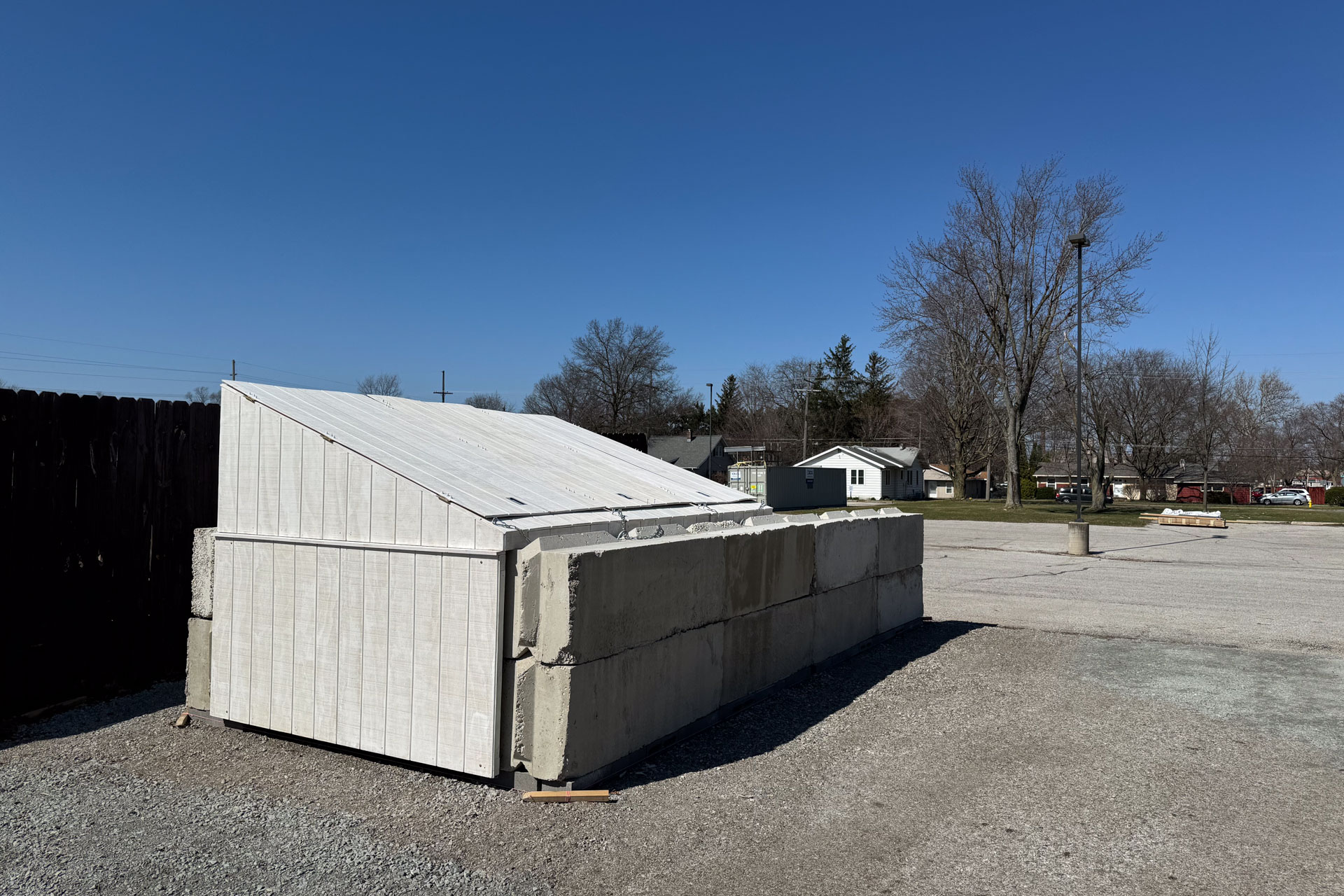The new composting bay, located behind the Physical Plant, should be operational by next week, according to Dan Barwick, Goshen College’s sustainability coordinator.
GC recently hired Barwick, who will be leading the mission of creating a more environmentally-friendly campus, centered in large part around the practice of composting. There is currently no composting options from GC.Barwick said that “the desire has always been there, but currently we aren’t actually composting.”
He went on to describe the new concrete composting bay, and how it will be used to advance composting strategies at GC.
“Our method uses a compost bay, a dump bin (a metal dumpster with a lid that tilts forward to dump the contents) and a forklift to transport the dump bin to the compost bay.”
According to Barwick, once the new compost bay is functional, food waste and paper products from AVI Fresh will be added to the bay and let sit to turn into “wonderful compost.”
Composting is a “relatively simple thing to do,” yet is “scientifically complex” in Barwick’s view. He said that when he was hired, composting was a major issue for him.
“Investing in building a compost bay was a major step in making sure that GC practices what they preach,” he said.
Members of the student body are also interested in the ongoing composting situation at GC.
Jacob Dixon, a second year sustainability studies major, is one of several students passionate about the importance of composting. “With the composting system,” he said, “we’re progressing to a state where it’s starting to become a lot more progressive and very productive.”
Dumpster audits and advertising are ways in which GC students are taking action towards the ideal of sustainability. Dixon, however, also admits the flaws in the system, and GC’s former lack of effort.
“In the past, there wasn’t really much being done about where that waste goes and how it’s being used at all,” he said.
Gonzalo Barahona Hernandez, a senior biology major, shares Dixon’s perspective.
Regarding food waste on campus, he said, “I would say as a practice, it’s probably poor at the moment. … Compost at the Frott has just been going to waste lately, so that’s kind of upsetting.”
Barwick said, “At the Union dining hall we have a bin for compost, recycling and trash. It’s discouraging seeing how many plastic utensils end up in the compost and trash bin.”
Barahona Hernandez proposed that the college take more efforts toward sustainability by integrating practices of composting food waste at Java Junction, such as coffee grounds, or repurposing the wood that is cut down on campus as opposed to throwing it away.
“I think it’s important to know about your waste,” Barahona Hernandez said. “We live in a society of over-abundance, and because of that over-abundance, we also have a lot of waste.”
Mia Wellington, a senior sustainability studies major, has taken matters into her own hands when it comes to making composting a reality. For her senior capstone project, Wellington focused her efforts on creating a composting system on her family farm, taking compostable products from the student apartments.
Wellington’s process consists of apartment residents collecting their compost and setting it in a reusable container outside of their door. From there, Wellington deposits the food waste into a composting bin on her farm, layering wood chips and manure to encourage the decomposition process.
“There’s not really much people can do, because there’s nowhere to take compost,” she said. “Even if you separate your food waste from regular trash, there’s nowhere to take it … there’s no infrastructure.”
“I chose to do it because it’s an issue on campus and I’m frustrated by it,” Wellington said. “I’m a senior, so I won’t be here next year. One of my goals for this is to try to find a way that it will last beyond me.”



